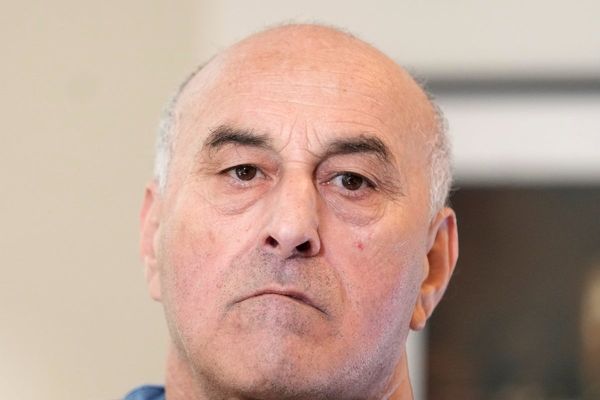
Weight-loss medications like Wegovy and Saxenda are flying off pharmacy shelves, given their ability to shave nearly 20% off one’s body weight with a single weekly jab.
As the miracle drugs make headlines, the topic of obesity is again at the forefront of the social consciousness—and the debate that accompanies it. Is obesity hereditary? A choice? Influenced by other factors like poverty and mental illness?
And does it even matter?
“It’s my personal belief that even if someone chose a particular path—and I don’t think that’s the case here—once someone is suffering and sick, I think we, as a society, should treat them,” Zach Reitano says. He’s the cofounder and CEO of Ro, a health care company that treats conditions like obesity, hair loss, and erectile dysfunction via telehealth without requiring insurance. (Reitano will be speaking on the topic of overcoming obesity at Fortune Brainstorm Health later this month. To learn more about the conference, click here.)
The stunning success of Wegovy and similar drugs have created the opportunity for conversation about obesity and the factors behind it—and the list doesn’t include character flaws and moral failures, he says.
“Having obesity has often been thought of as a flaw of self-discipline or willpower,” Reitano says. “There are very few health care conditions where people know you have them from an initial interaction—and make a snapshot judgment as a result.”
Evidence is mounting that obesity is “more so a neurohormonal disease” than a consequence of lifestyle choices—“a medical condition similar to other chronic diseases we’re more familiar with, like diabetes and hypertension,” he says.
While genetic, environmental, and behavioral components all play into the development of obesity, behavior plays far less of a role than one might think, he contends.
The fact that the vast majority of those who go off Wegovy or similar drugs will regain the weight they lost demonstrates that obesity is, indeed, a chronic disease, he maintains—and we should think before judging someone experiencing rebound weight gain.
“If this were diabetes or hypertension or high cholesterol, when you go off a statin or blood pressure medication or stop taking insulin, you’d expect a negative result,” he says, adding that there’s no reason why we shouldn’t expect the same result in those who stop using the weight loss injectable.
Medications like Wegovy allow the body to defend a “set point, an ideal weight and level of body fat their body wants them to have.” Normally, when someone attempts to lose weight, their body transitions to a starvation response, which increases their appetite and sometimes even slows their metabolic rate—turning weight loss into a battle, Reitano says.
“Their body is constantly fighting them, mimicking the starvation response,” he adds. “To expect an individual to fight a starvation response for 80 years is extremely unreasonable.”
Drugs like Wegovy and Ozempic mimic a hormone produced in the intestines after meals, called glucagon-like peptide-1 (GLP-1). It helps regulate appetite and food intake, sending a signal to the brain that “prevents your body from initiating that starvation response,” and allowing one to be more satisfied with fewer calories. While Wegovy is approved for the treatment of obesity in those who have weight-related health conditions like high blood pressure or cholesterol, Ozempic is only approved for those with Type 2 diabetes.
Because obesity is a “chronic neurohormonal disease,” patients with it “need ongoing care,” Reitano says—and that may entail long-term use of medications like Wegovy.
“They’re not for everyone, but they can be a godsend, a game-changer for those for whom they’re clinically appropriate,” he says. “They aren’t replacements for other healthy activities,” or for diet and exercise. “But in many ways, they will actually assist like a jet pack, in terms of helping someone improve their behavior.
“It’s much easier to adhere to a diet if your body isn’t telling you you’re starving.”
Each year, Fortune Brainstorm Health assembles some of the best minds in health care to discuss the most pertinent topics in the industry. This year’s event, which takes place April 25–26 in Los Angeles, will feature conversations at the crossroads of health care, business, technology, and investing.
One of our main stage sessions at the upcoming event will focus on innovations in the field of obesity and will include Reitano. Interested in applying to register for Brainstorm Health? Please click here for more information.







